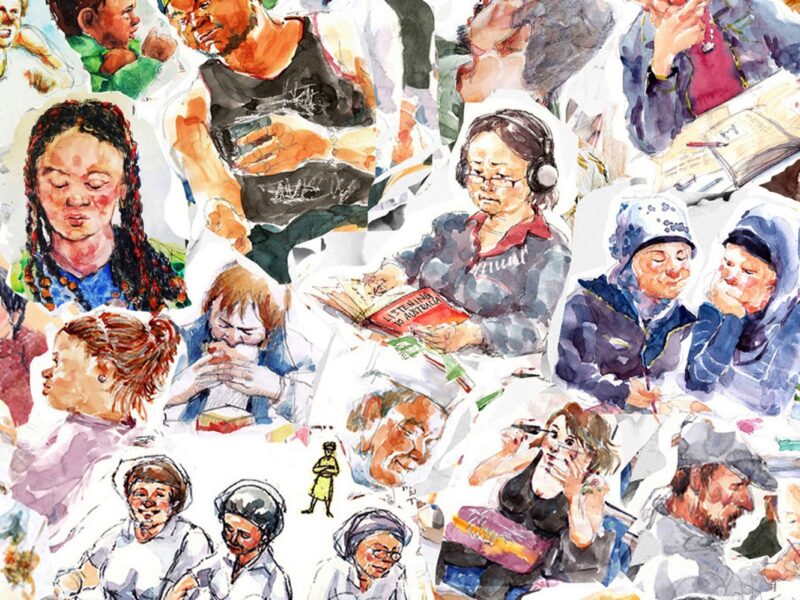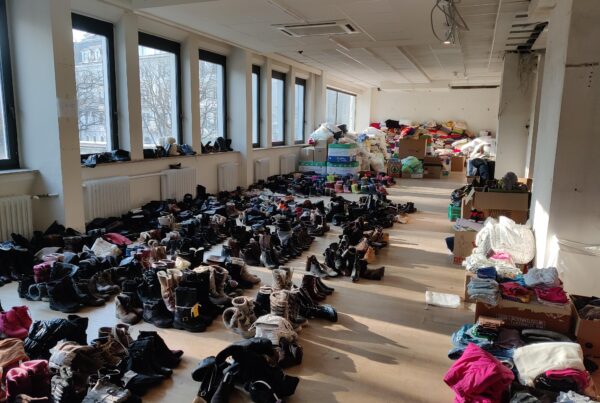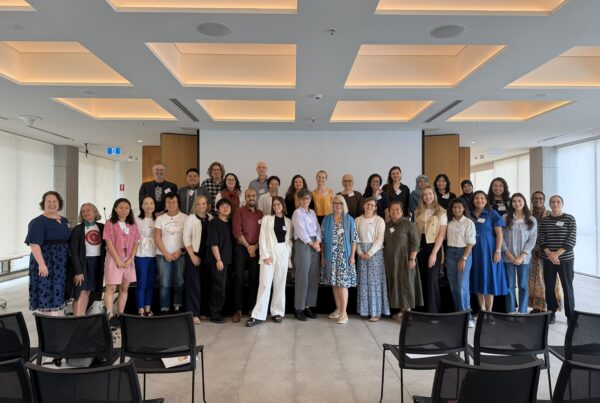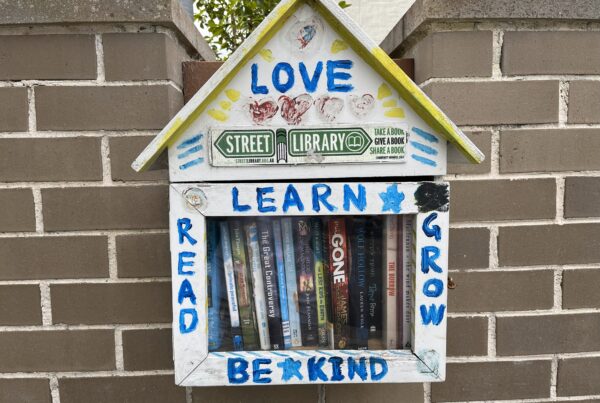
Extract from cover of “Life in a new Language” by Sadami Konchi (©Sadami Konchi)
Are you excitedly waiting for the publication of Life in a new language?
Life in a new language is our new book about the language learning and settlement experiences of 130 migrants to Australia from 34 different countries in Africa, Asia, Europe, and Latin America over a period of 20 years. Coauthored by Ingrid Piller, Donna Butorac, Emily Farrell, Loy Lising, Shiva Motaghi-Tabari, and Vera Williams Tetteh, the book will be out from Oxford University Press early next year.
In the meantime, we have now published a Twitter mini-portrait of each of the 130 participants on whose experiences we draw in our research. To save you heading over to Twitter, we’ve brought these together here in this post for your reading pleasure. (There are 131 tweets so the page might take a bit longer to load than usual.)
The portraits are ordered chronologically in order of publication on Twitter from the first one about Katja from Poland, which we published on March 07, to the last one about Abenet from Ethiopia, which only dropped a few hours ago.
Within the broad topic of language learning and settlement, the themes addressed in these mini-portraits are the same that animate the book: the initial language shock; the struggle to find employment consonant with one’s qualifications and skills; the challenge to make new friends and find a voice in interaction; building new family relationships and raising bilingual children; facing racism and discrimination; and finding a new sense of belonging and home.
The cover art for Life in a new language is once again produced by the amazing Sadami Konchi, who also is the artist whose work is on the cover of Intercultural Communication and Linguistic Diversity and Social Justice. This extract from her cover art for Life in a new language offers a sneak peak of her collage for our book cover. We believe the image perfectly captures a cross-section of Australia’s diverse society and the people behind Life in a new language.
To keep informed about publication updates related to Life in a new language make sure to subscribe to our newsletter when you get to the bottom of this page (in the right corner of the footer).






 This work is licensed under a
This work is licensed under a
Join the discussion One Comment